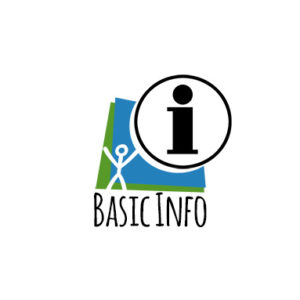
 Job Title:
Job Title:
Receptionist
One Sentence To Describe Work Role:
As a receptionist I provide administrative support to the business and I am the first point of contact for people either onsite or by telephone.
Number Of Years Dedicated To This Field Of Work or Lifestyle:
1
Category Of Work:
Employment – Paid Work
Country / Area of Work:
United Kingdom
Industry:
Clerical/Administrative
Type:
Employment
![]()
Key Skills For The Job:
Excellent written and spoken communication skills. You will be passing information on to departments throughout the company. Clear communication skills to answer telephone calls and greet guests onsite.
Strength in business administration is important. To be able to use the phone (use the hold, silent, transfer functions), use various computer software from the internet, Microsoft Office packages to bespoke company systems.
You have got to be driven to do good work even on days your not 100%, say if you have a cold or have pressures on you making you feel worried or stressed. Being the first point of contact means you need to be alert, be welcoming to guests and in a positive mood.
Vital Key Skill:
Excellent communication skills (verbal and non-verbal)

Your Personal Experience Of Entering This Role:
Higher Education Level
Tips For Undertaking This Work:
The interview stage is very important for any job but for receptionist applications it’s greatly useful. You are likely to have your interview in the office where the job will be based.
Even if the interview is based at an alternative office, your first impressions of attending the interview is very valuable.
For the potential employer they will meet you and gauge a first impression. This first impression is a key part of your interview even before the interview has started!
For the applicant you will get to observe the reception area while you wait. This can help you to get a glimpse immediately on what your working environment will be like, the pace of work, how busy the reception area is, how many calls are received. Granted, this is only a small insight and it depends on what time your interview is which could affect how busy the receptionist is.
Future Progression Or Developments:
There may be opportunities for you to progress your career as a receptionist (to become head receptionist) or you may wish to seek a higher administrative position within the company such as becoming a secretary or personal assistant.
As a receptionist you can build up a reputation for yourself within the business. You develop/demonstrate your skills set in an environment all employees of the business get exposure to. A junior position may also become available within the company for which you could apply for that is different to reception/business administration such as working as a sales agent, business marketing, customer service roles, etc.
![]()
I don’t think I could help change the quality of my work or the quality of my experience of the role by giving advice to a younger me. I realised how much a receptionist is valued later in my career.
The company I worked for had three key offices, some satellite offices and catered for over 100 staff members. Some staff worked permanently onsite while others changed their location based on their work needs.
A receptionist in my opinion is key to the smooth communication of visitors, colleagues, customers and contractors for any business. How well they work directly assists any office being able to run smoothly.

![]()
What Are The ‘tools of the trade’ Used Daily:
Computer, telephone, notepad, company literature to help in undertaking your work, franking machine for post. Software including MS Office, the internet, company intranet.
A Typical Day’s Duties:
I would make sure my work station is ready for the day. Collect any post delivered in the morning, water the plants in the reception area, turn on my computer and load the company website (a great easy access source of information to help answer any initial customer queries), check my phone is working and make sure the reception area is neat and tidy.
I greeted visitors and directed them to the correct department. This includes asking visitors to sign the visitors book, a very important thing from a safety point of view knowing how may people are on site (useful in the event of a fire evacuation) or to be able to deal with any issues concerning parking.
Throughout the day I would take calls and re-direct calls to the relevant department. I needed to check the intranet phone directory. I ended up putting extension numbers with faces/names in my mind. After a few months of working for the company I referred less to the intranet for extension numbers!
Departments assigned me administrative duties to be completed during quieter periods of time. Examples of this would be collating documents for meetings, packing envelopes with information to be sent to customers, emailing replies to basic customer inquiries.
My office had a conference room which could be hired out. Every morning I would check the room bookings for the day. I set up any equipment needed laptops, projector, whiteboard, light refreshment, etc. The caterer would deliver a buffet lunch, I would liaise with the caterer directly to make the booking and help them to lay out the refreshments on the day. At the end of the day I would clear away the conference room and update my room management spreadsheet to confirm the cost of refreshments, number of delegates in attendance, etc.
At 4:00 pm I would need to process any post. I would use the franking machine to put postage onto the outgoing mail. The post would need to be packed into various collection bags used by Royal Mail.
I would be vigilant throughout the day to check anyone in the general area was OK, check for any health and safety risks (fire doors left open, boxes being delivered not posing a risk to visitors as they are being packed away by staff,etc).
Is Travelling A Regularly Part Of This Work:
No
Weekly Working Hours:
Full Time
Type Of Hours Arrangement:
Fixed Working Week
![]()
The Best Thing About The Work You Do:
The best thing about being a receptionist for me was the amount of variation to your day. Variation in terms of the people you would meet, the problems you would solve and tasks other departments would ask you to undertake. This made every day fun and challenging.
Your Least Favorite Thing About The Work You Do:
The quieter times. There were a few occasions where there wasn’t any additional work I could keep myself busy in quieter times. I prefer to be busy.
Duties You Hadn’t Anticipated Prior To Undertaking The Work:
I didn’t really appreciate how working with other departments would equate to a greater range of work tasks coming my way.

![]()
The Top Perks Of The Work:
Meeting new people every day.
Other Work In The Same Sector:
Jobs in an office administration sector head/ senior receptionist or personal assistant (PA) role.
Other employees within the business were business advisers, sales associates, marketing team, finance manger, customer information department for inquiries, department heads, junior administration positions within each department etc.
![]()
Additional Info You Wish To Share:
Working as a receptionist means you are in some ways the pulse of the organisation. You know who does what, where everyone is, who to contact for different kind of events or in tackling any issues. You are the first point of call should there be any issued regarding the smooth running of visitors onsite or general flow of work concerning all things related to the reception area.
Its a fun, challenging and varied positions. Its a fantastic career choice in its own right. The role has the potential to help you progress should you wish to change your area of work int he future as it provides a great set of transferable skills.




